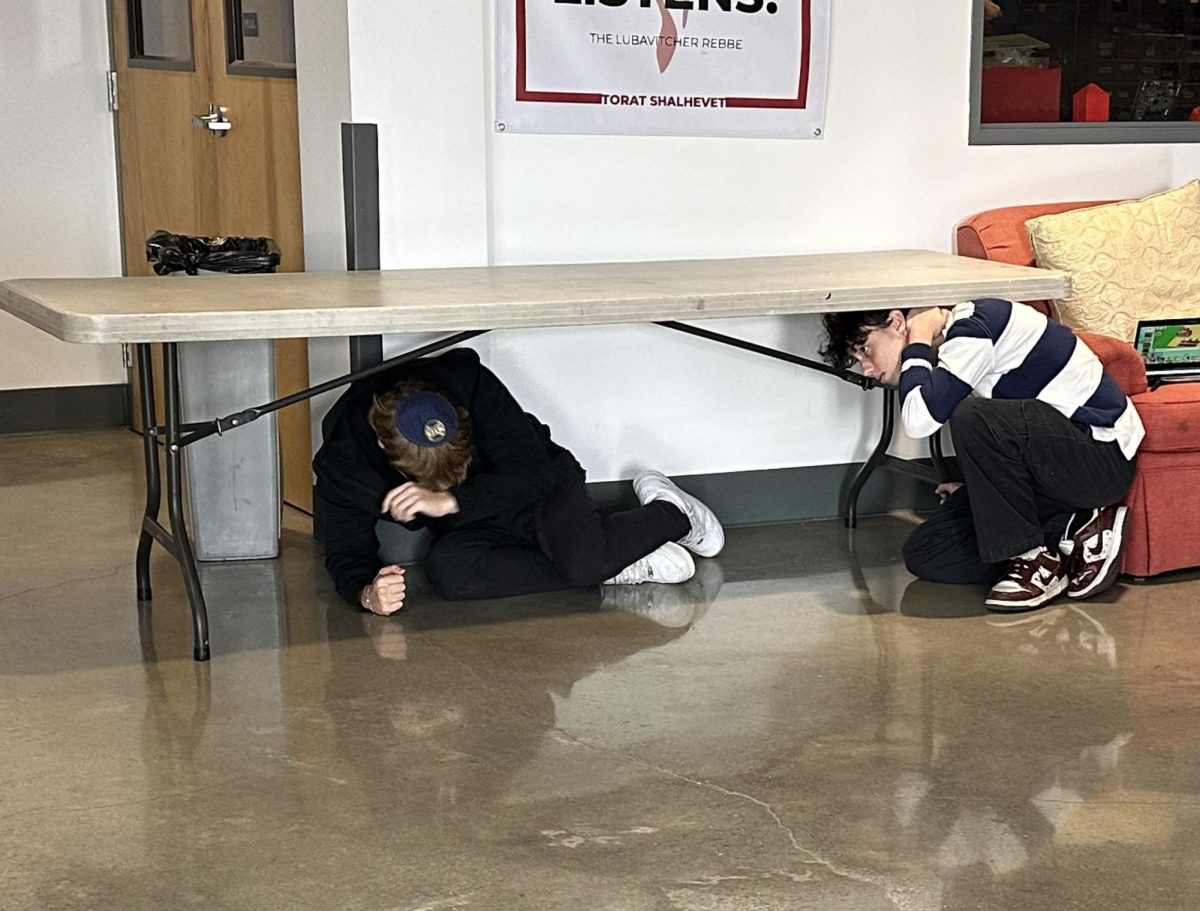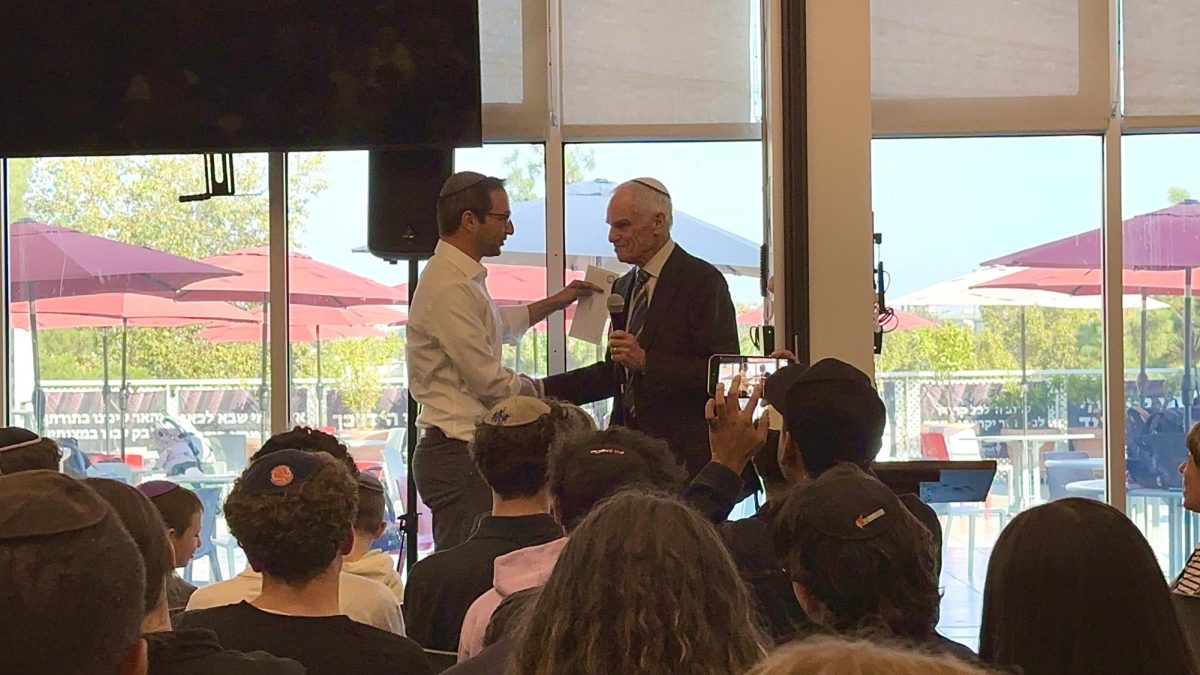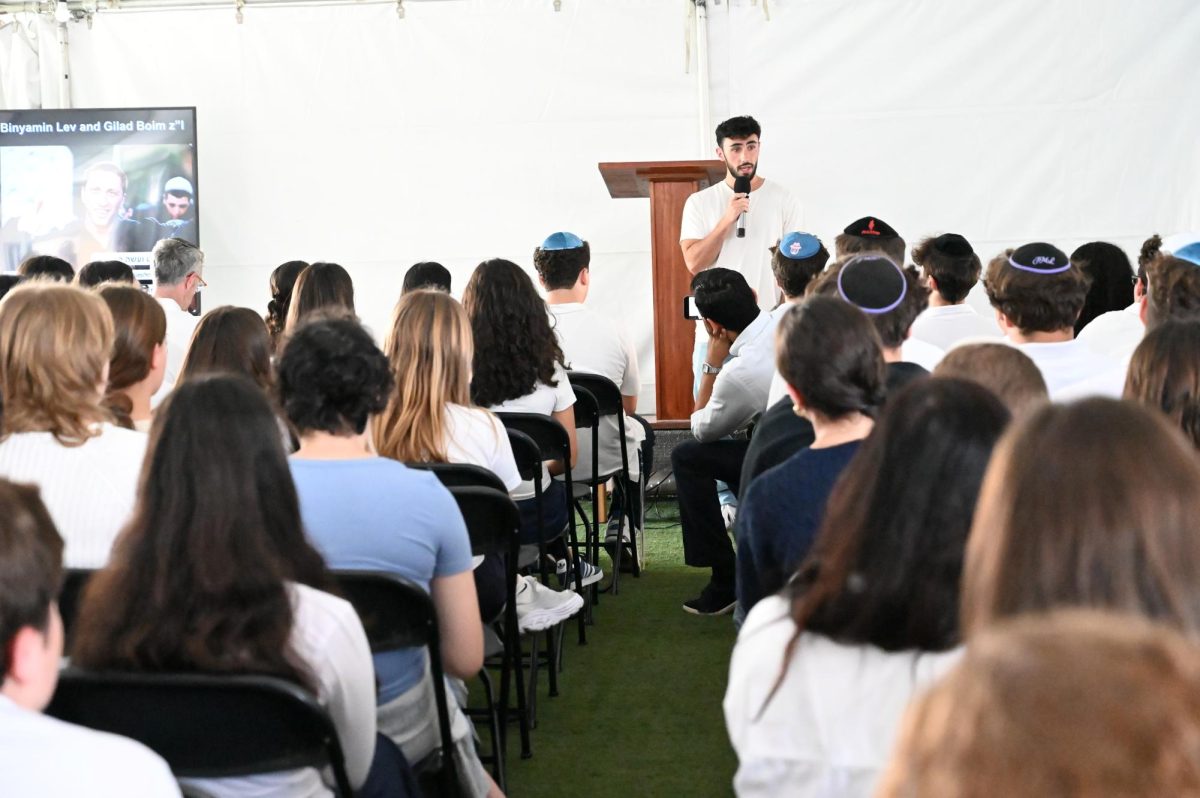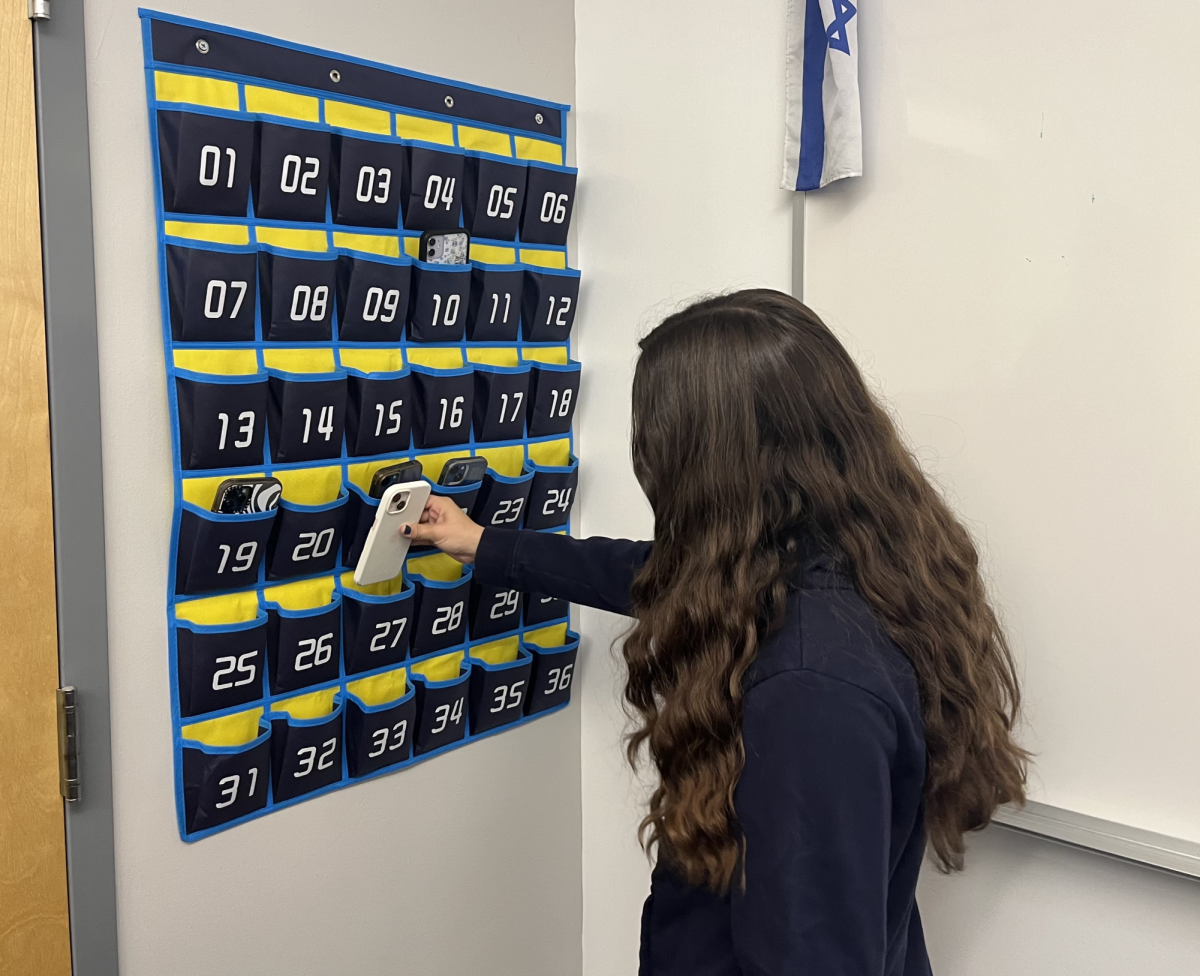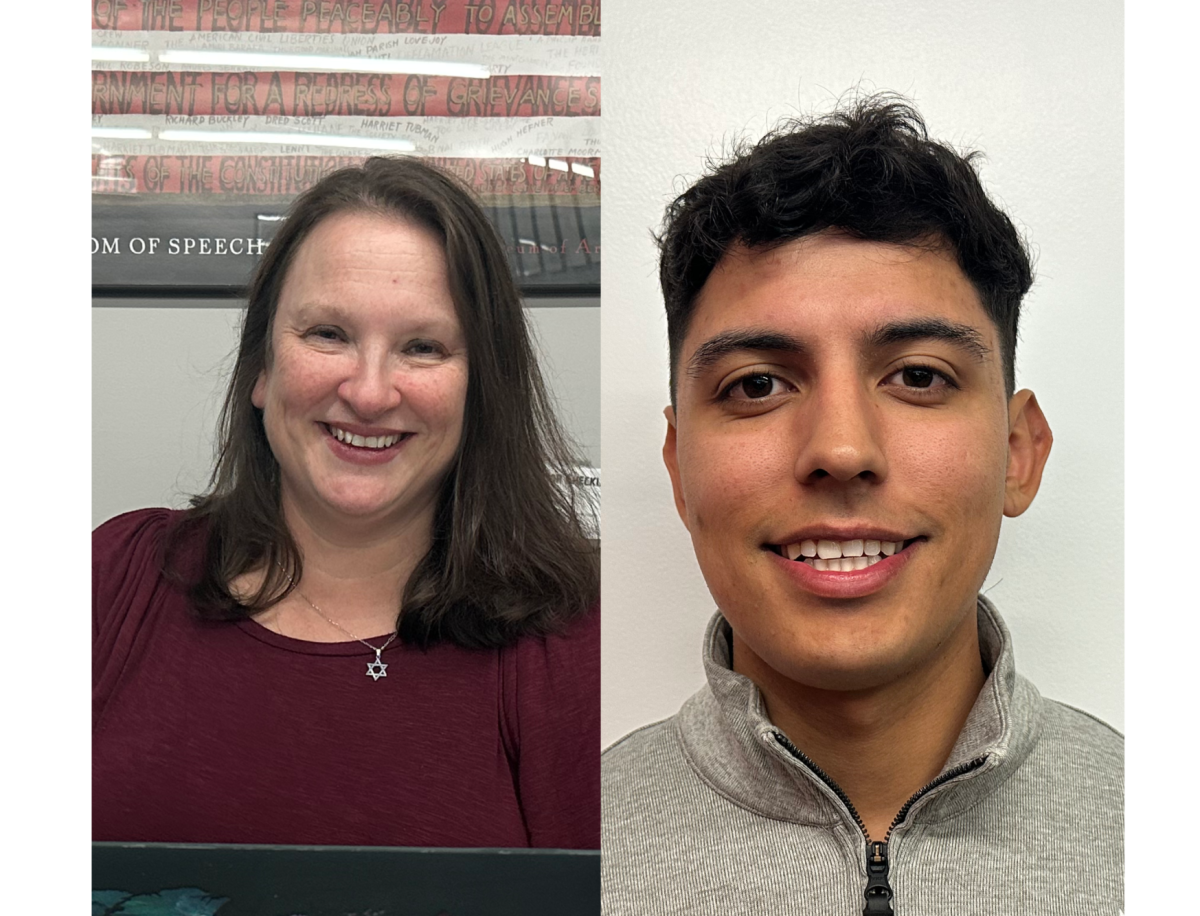There’s always something worse.
As an African-American soldier fighting in WWII, then-Private Leon Bass nursed a sense of grievance over having to stand for 100 miles on a bus with empty seats because he wasn’t white. But when he witnessed the skeletal bodies dying of starvation at the Buchenwald concentration camp, his life would be forever changed.
Shalhevet and YULA came together Feb. 14 to host an inspirational figure, Dr. Leon Bass, an 84-year-old World War II veteran who was one of the first Americans to see the inside of a concentration camp at the end of the Holocaust.
Speaking to an overflow audience in the main sanctuary of Beth Jacob Congregation, Dr. Bass told the story of racism he encountered in his life, as well as his life-changing experience as he helped liberate one of the most notorious death camps.
The night also included an award ceremony which honored “upstanders” from both high schools. Nine students were honored for their achievements, mostly in community service. Shalhevet honorees were Josh Meisel, Jaclyn Kellner, Ezra Schwarcz and Eliana Willis.
Beginning with his youth in the pre-Civil Rights era, Dr. Bass described his personal story of growing up. Throughout his youth he noticed a common theme: that he wasn’t good enough.
“I wasn’t good enough to sit in the front of the bus or drink the same water as everyone else,” Dr. Bass recalled.
He decided to join the army towards the end of World War II, and was one of the first American soldiers inside Buchenwald. In tears, he described those he saw that day as “the walking dead.”
“I couldn’t understand why nearly 12 million people — blacks, gypsies, homosexuals, Jews — were murdered just because they were different,” Dr. Bass said, pausing with emotion. “Why?”
After that, he felt differently about the disrespect he’d experienced as an African American.
“There’s always something worse,” Dr. Bass said.
Dr. Bass told the audience not to sit back and tolerate intolerance and hate. He urged students to be “Daniels,” those who – like Daniel the prophet – stand up against injustice and the unethical.
The ceremony included a question and answer section after the speech as well as the award ceremony honoring “Daniels” from both schools. Yet the night was not devoid of controversy. General Studies Principal Mr. Phu Tranchi was scheduled in the program to close the evening, but YULA’s Rabbi Heshy Glass was seen by many waving off Mr. Tranchi as he approached the stage. Mr. Tranchi did not get to speak.
Shalhevet students who saw it happen thought Rabbi Glass had deliberately excluded Mr. Tranchi.
But Rabbi Glass called Mr. Tranchi to apologize two days later. He said he had not seen the final version of the program, to which Mr. Tranchi and the YULA General Studies principal had been added at the last minute.
“I had absolutely no idea he was on the program,” Rabbi Glass told The Boiling Point later that week.
Mr. Tranchi confirmed the call.
“He apparently had a version of the program which did not show me on it.” Mr. Tranchi said later, noting that he was aware that such a program did exist.
Aside from some the controversy, the night was one people would not soon forget. Dr. Bass, whose tall figure was barely diminished by his age, delivered a message which seemed to resonate with the crowd.
“It was very touching,” said freshman Joelle Edry. “The way he described things was really inspirational.”
The event was organized by English teacher Nancy Sterman as part of Facing History and Ourselves, a program Shalhevet adopted last year that also hosted Terrence Roberts, one of the Little Rock Nine.


